Yes, in general, homeowners insurance covers lightning strikes. Your insurer should pay to repair any damage from resulting fires and power surges, as well as damage to your structural property and personal belongings. However, there could be exceptions. You should always read your individual policy to understand exactly what it covers.
Unfortunately, some insurance companies do everything possible to avoid paying claims fairly, especially if a lightning storm affected many people in the same area. It might take some negotiating and fighting back to receive coverage for the lightning damage your home has endured. A Texas homeowners insurance claim lawyer can advocate for you during this process.
Types of Lightning Damage That May Qualify for a Homeowners Insurance Claim
At Carrigan & Anderson, PLLC, we serve clients with various types of lightning strike claims. They may stem from the following incidents:
- Lightning that directly strikes the home. This event could send electricity throughout the building and result in a power outage, a fire, burn marks on the property, or damaged electronics.
- Lightning that strikes surrounding structures. If lightning strikes a tree or pole near your home, it could fall on your home and cause severe damage.
- Ground surges. If lightning strikes the ground around your home, the electricity could go out, and any electronics plugged in at the time could be damaged or destroyed.
If your property sustained any type of damage due to lightning strikes, you may qualify for compensation from your home insurance company. One of our Texas property insurance claims lawyers can review your policy and determine your eligibility.
We have offices in Houston, Corpus Christi, and Victoria; and will travel to any corner of Texas if we are capable of preventing an injustice.

Types of Damages You May Recover in a Homeowners Insurance Claim
You should review your homeowners policy to learn exactly which types of damage it covers. Although everyone’s homeowners insurance policy is different, common forms of recoverable damages include the following:
- Relocation costs: If the lightning storm was so serious that you couldn’t live in the home and had to find temporary housing, your policy could cover additional living expenses like lodging and meals.
- Cleanup expenses: If lightning struck a tree, causing it to fall on your home, cleanup costs should be covered.
- Damage to your personal possessions: Electronic devices, such as appliances, are most prone to damage from lightning strikes.
- Structural damage: Your home might have to undergo extensive repairs following a lightning strike. In addition, you may receive coverage for any secondary property damage, such as to your detached garage or shed.
Sometimes, storm, wind, hail, and/or hurricane damage might accompany lightning strikes. In that case, you may qualify for compensation for any losses resulting from these events.
What Happens When the Insurance Company Denies Your Lightning Strike Claim?
Insurance providers often deny homeowners insurance claims for lightning strike damage. They may have a valid reason to do so if, for example, a required document is missing from the claim.
However, in some instances, insurance adjusters may act in bad faith. Insurance companies are businesses, so when they pay out claims, they lose money. But that’s not a good reason to deny or delay covering your damages.
Potential signs of bad faith insurance practices include the following:
- Not investigating the damage
- Offering an insufficient settlement
- Intentionally misrepresenting the terms of your homeowners insurance policy
- Denying your claim without a valid reason or explanation
- Failing to acknowledge the receipt of your claim
- Unnecessarily delaying the claim
- Misrepresenting the facts of the claim
- Blaming you for the damage
One of our Texas bad faith insurance claims lawyers can determine if the insurance company is treating you unfairly and combat these unscrupulous tactics on your behalf.
The Deadline for Taking Legal Action Against a Bad Faith Insurer
If your insurance company is acting in bad faith with your lighting claim, you can fight to hold them accountable. According to Texas Insurance Code § 541.162, you generally have two years to file a lawsuit against them. This time frame may begin on the day the insurer acted in bad faith or the day you discovered or should have discovered their bad faith action.
Texas takes these deadlines seriously, so if you try to file too late, the court will likely not let you proceed. As a result, you may have to cover your lightning strike losses. However, if you involve our legal team in your case early enough, we can ensure you comply with the two-year time limit.
Representing the injured in all areas of Texas that extends back over 40 years

How Our Lawyers Can Help You With Your Homeowners Insurance Claim for Lightning Strikes
Navigating the claims process when dealing with relocation, cleanups, and repairs can make the situation even more overwhelming. However, you can focus on those things when you have a homeowners insurance claim lawyer from Carrigan & Anderson, PLLC fighting for you. We can handle these functions on your behalf:
- Documenting the damage your property sustained from the lightning strike
- Gathering all necessary evidence to build your case
- Reading, reviewing, and interpreting your homeowners insurance policy
- Determining which damages qualify for coverage
- Speaking to your insurance company
- Negotiating for a settlement amount that covers all your losses
- Fighting for your rights in a trial, if necessary
You won’t have to deal with a secretary relaying your message, as you will have direct contact with your attorney throughout your case. You can even text your attorney at any time, and they will respond seven days a week.
All of these legal services will be available to you under a no-win, no-fee policy.
You need a skilled advocate to protect your legal rights and present your claim in such a way as to maximize your recovery.

Call Us to See If Your Homeowners Insurance Covers Lightning Strikes
Standard homeowners insurance policies generally cover lightning strikes, but obtaining the compensation you need isn’t always easy. Our legal team can verify whether your homeowners insurance covers your damages resulting from a lightning strike and fight for the compensation you deserve.
We have more than four decades of experience in personal injury and insurance law and have recovered millions of dollars for our clients. We are here for you, no matter your situation. Contact Carrigan & Anderson, PLLC, today for your free, no-obligation consultation.
At Carrigan & Anderson, PLLC we can talk to you about your options and rights.


